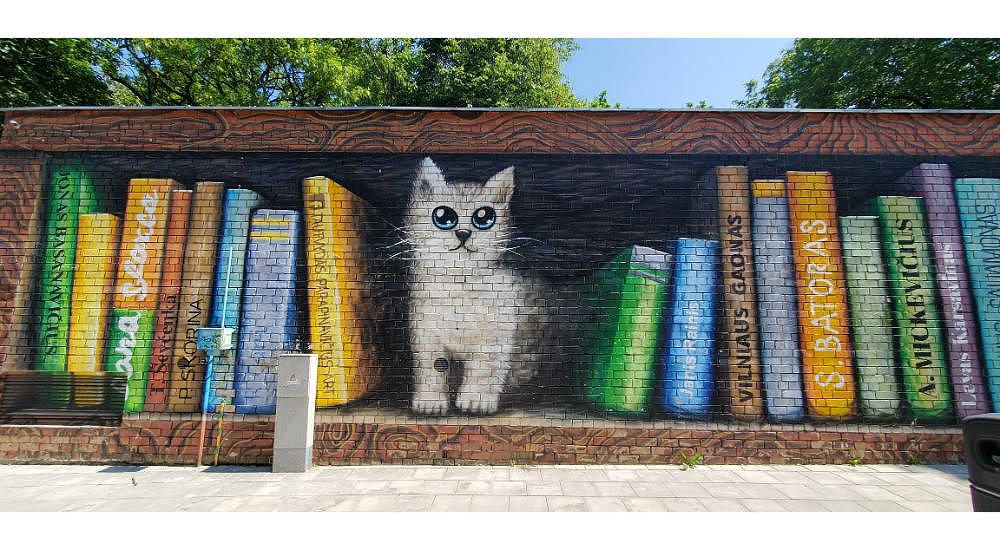
Connecting Creative Cities: Whanganui and Vilnius and Ōtepoti
By Scott Flutey | Posted: Tuesday Nov 04, 2025
Scott Flutey’s internship at Vilnius City of Literature, Lithuania reinforces the special connection between three UNESCO Creative Cities.
At the start of June, my family waved me goodbye at Whanganui Airport as I set off on a long journey to Lithuania, on the Baltic Sea, to undertake an internship at Vilnius UNESCO City of Literature.
I had applied for the Bring Together Lithuania programme, intended for young professionals in the global Lithuanian diaspora. At 32 years old, I'm at the upper end of the age limit for participating, but saw an opportunity too exciting not to apply for it. My Lithuanian connections are very distant - my grandfather's grandfather emigrated from there to England in the 1890s, marrying a Polish woman upon his arrival in Manchester. Their grandson (my grandfather), emigrated himself from the UK in the 1950s and he made his home here in Whanganui. His stories, and his family's, fascinated me and seemed impossibly far from my own life in provincial Aotearoa. Indeed, I’d never travelled to Europe before until this year.
As far as I understand, no descendants of Sigmund Giedraitis (anglicised to Gedroge) and Salomea Giedraitienė ever returned to their home countries, so taking an internship in the Baltics would allow the family to make its first steps back in 130 years.
After a shortlisting process, and an interview with the Bring Together Lithuania team, I was ultimately offered a place on the programme for 2025. Every individual participant in BTLT is offered a tailored internship at a company or organisation in Vilnius, the capital of Lithuania.
Vilnius City of Literature was designated in the 2021 Creative Cities cohort, alongside Whanganui City of Design. For both cities, the designation was the result of a long period of dialogue, planning and consultation. UNESCO Creative Cities provide an initial point of interest and contact, even across the diverse categories of creativity which they encompass.
I had little awareness of Vilnius' literary clout, though I was aware of the city's importance in history, at times glorious, contested, and tragic. I knew that in accepting the internship, I would soon be learning and reading a great deal more about the city, and hopefully sharing some of my own experiences of Whanganui, another historic centre of creative excellence.
It was into the space of contested histories that the Vilnius City of Literature team asked me to help as an intern. Public reminders and narratives of the Soviet occupation, lasting 1940-1990 (with a brief but tragic interregnum of Nazi occupation in 1941-1944), are becoming the focus of greater attention and debate as Lithuania moves into its 35th year of renewed independence.
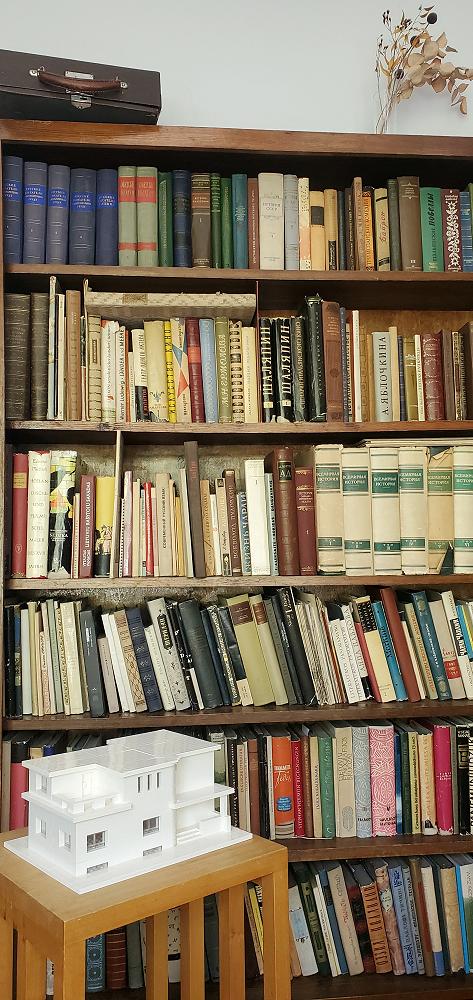
The legacies of several Lithuanian literary figures are explored at Pamėnkalnis Villa and the Professors' House - both cutting-edge modernist residences of the 1930s, a period when Vilnius was under Polish administration. At Pamėnkalnis Villa, Soviet politician Antanas Venclova raised his son, the scholar, poet, and future dissident Tomas Venclova. Five minutes around the corner, a four-storey high-end apartment building was home to assorted writers attached to Vilnius University Faculty of Humanities. Today, this block is partly the Professors' House museum, occupying some former flats, while others remain as residential apartments. Balys Sruoga, Vincas Mykolaitis-Putinas and Vincas Krėvė-Mickevičius are some of the prominent literary figures who lived in the building, and their lives reflect the struggles and challenges of being a creative in turbulent times and amidst colonial occupations. At times, unfathomable choices faced these figures who saw some of the 20th century's darkest moments first hand.
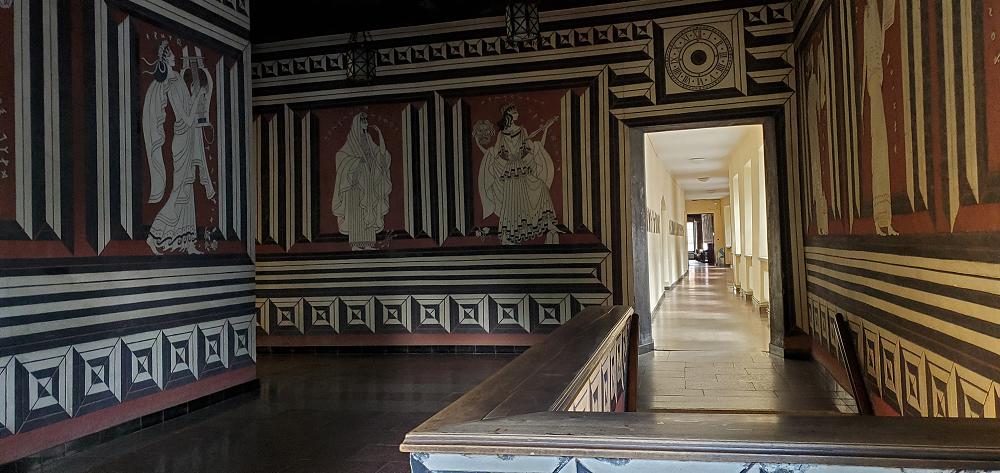
As well as assisting with English-language interpretation at these cultural centres, which have recently been brought under the umbrella of Vilnius UNESCO City of Literature, I was asked to share some of my own experiences as a historian of mixed Lithuanian, Pākehā and Māori descent. My colleagues, and those connecting with the City of Literature programme, were particularly interested in how Te Ao Māori is today celebrated and upheld, overcoming many decades of repression and prejudice. It was a joy to share some Whanganuitanga, and Ngāi Tahutanga (from my Flutey side) at two lectures I gave at Vilnius Literary House, in the heart of the baroque Old Town. The struggles of our own people to survive and assert their cultural identity have a real resonance in the Baltic region of Europe, which has spent centuries grappling with Russian and Soviet occupation. Likewise, political and cultural current events in both Lithuania and New Zealand, though not identical, sometimes rhyme - especially at the present time (there are a number of protests at the moment across the cultural sector in the wake of a new Government being formed).
The Bring Together Lithuania programme provided an astonishing level of depth into current cultural and political life in modern Lithuania, for myself and the other 30-odd participants. As well as working for Vilnius UNESCO City of Literature, I was also taken on excursions, and was able to meet diplomats, ministers and other representatives to get a feel for the country's priorities. Bring Together Lithuania, though mostly funded through the Lithuanian-American Kazickas Family Foundation, is also supported by the Lithuanian Government directly, who wish for Lithuanian descendants to re-connect with the country in a variety of ways. A proud, staunchly independent and Western European-aligned country was shown to us - especially keen on sharing its culture with me as a Kiwi. There was definitely an affinity between myself and Lithuanians as our countries are frequently missed off maps!
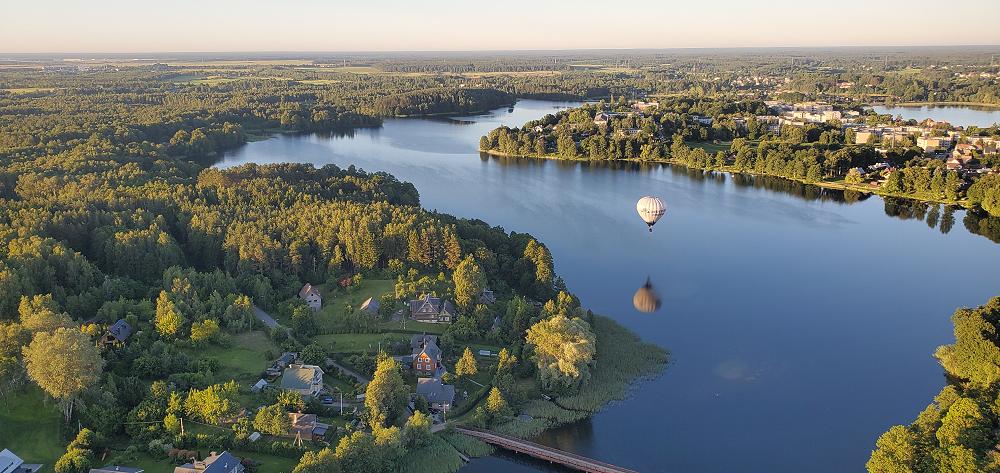
Some additional time was spent in Riga (Latvia), a UNESCO World Heritage Site, Kaunas (Lithuania), and Kraków (Poland), the latter both UNESCO Creative Cities and all wonderful in their own ways. After two extraordinary months, and six weeks specifically in Vilnius, it was time to return home. Saying goodbye to my new friends was particularly difficult, though I'm confident I'll see them again. I plan on learning Lithuanian (but I found almost everyone there spoke English and Vilnius is a globally-minded city) and to facilitate future connections and engagement between Lietuva and Aotearoa.
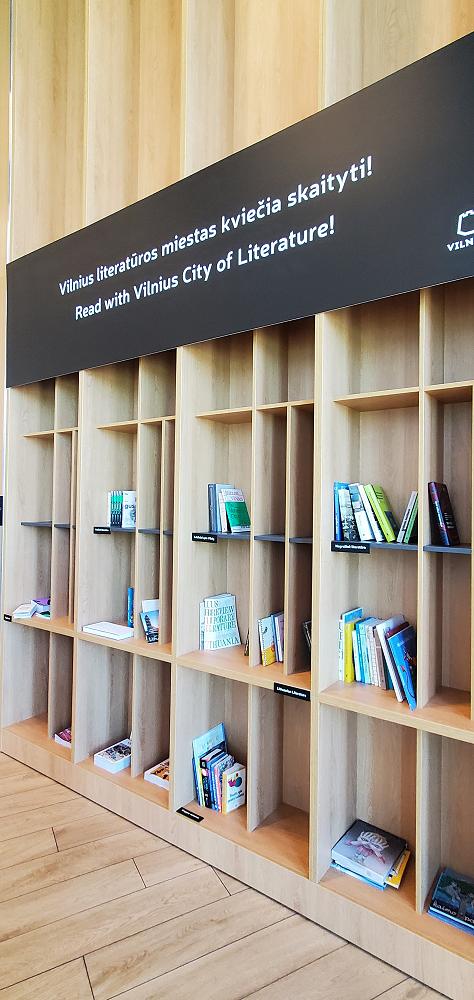
I wish to thank the Creative City offices of Vilnius, Whanganui, and Ōtepoti, and the Bring Together Lithuania programme for encouraging, facilitating and supporting the experience.
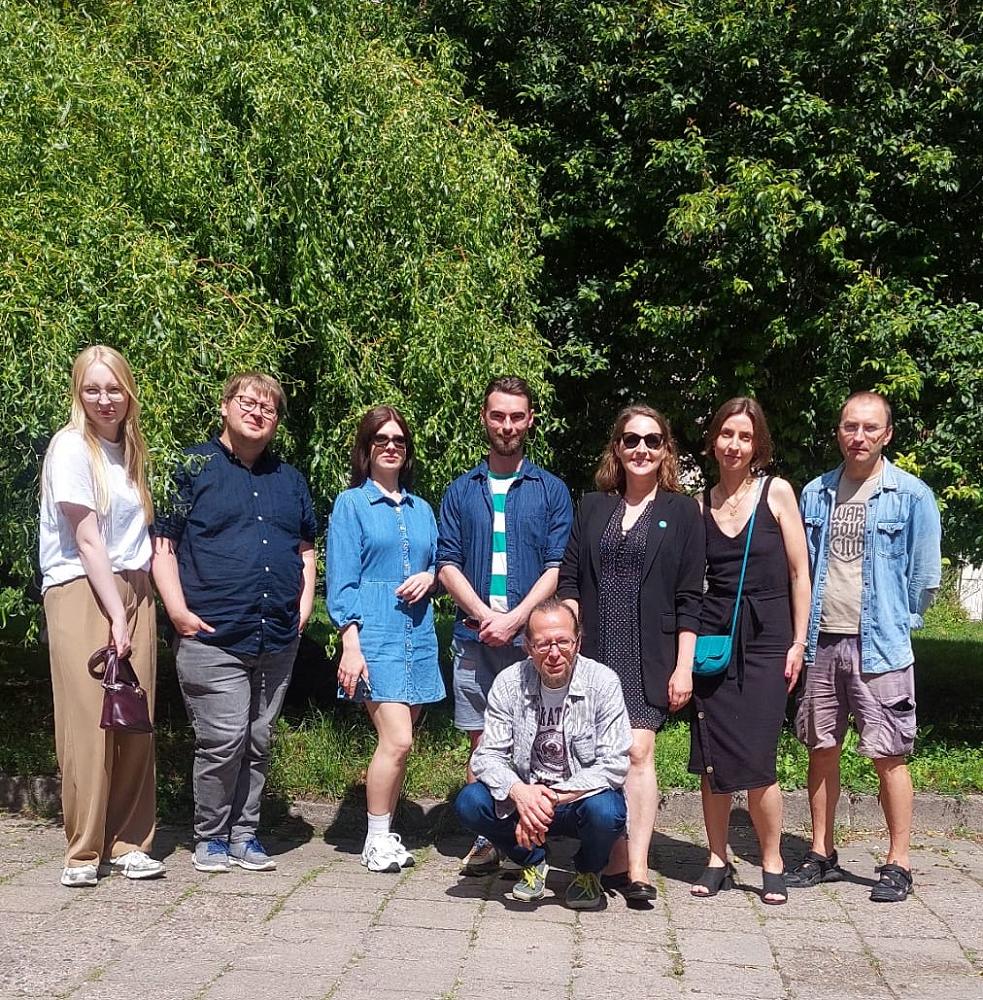
Scott Flutey (Ngāi Tahu, Ngāti Māmoe, Waitaha, Pākehā) is a Whanganui-based public historian with interests in social and architectural history, and in heritage conservation.



